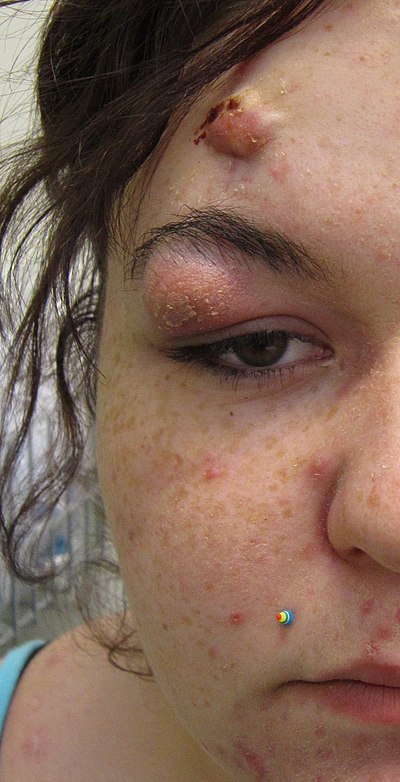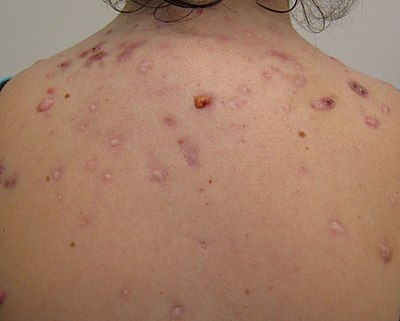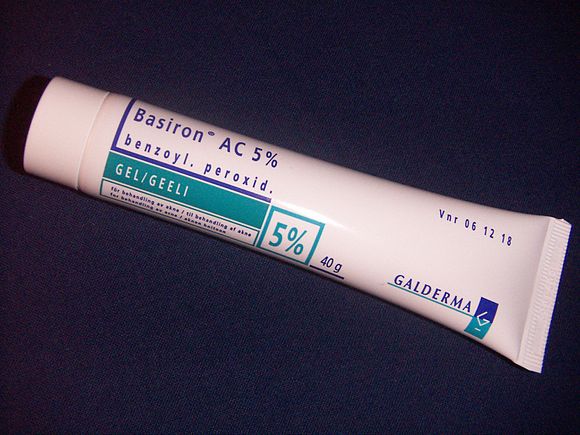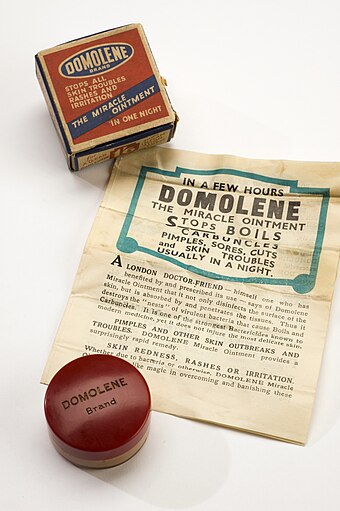Acne
Acne, or acne vulgaris, is a chronic skin condition primarily seen during puberty, caused by clogged hair follicles due to dead skin cells and oil. It manifests as blackheads, whiteheads, pimples, oily skin, and potentially scarring. The psychological impact can be significant, leading to anxiety, reduced self-esteem, and depression.

Risk Factors and Causes
Genetic predisposition accounts for 80% of acne cases. Other potential factors include hormonal changes, particularly androgens, diet (high glycaemic load foods), and possibly stress. The bacterium Cutibacterium acnes plays a role in inflammation and infection within clogged follicles.
Signs and Symptoms
Acne presents with various lesions, such as:
- Comedones: Blackheads (open comedones) and whiteheads (closed comedones)
- Inflammatory lesions: Papules, pustules, nodules, and cysts
- Scars: Atrophic (ice-pick, boxcar, and rolling scars) and hypertrophic scars
- Pigmentation: Postinflammatory hyperpigmentation (PIH)



Diagnosis
Diagnosis is clinical, based on the presence of comedones and other acne lesions. Severity scales, such as Cook's acne grading scale and the Leeds technique, help in assessing acne severity. Differential diagnoses include folliculitis, rosacea, and keratosis pilaris.
Pathophysiology
Acne involves four main processes:
- Increased sebum production
- Follicular hyperkeratinisation
- Colonisation by Cutibacterium acnes
- Inflammation


Treatment
Lifestyle Changes
Daily skin care, including gentle cleansing and the use of non-comedogenic moisturisers, is recommended. Dietary modifications, like reducing high glycaemic load foods, may help.
Medications
- Topical Treatments: Benzoyl peroxide, retinoids (tretinoin, adapalene), and antibiotics (clindamycin).
- Oral Treatments: Antibiotics (doxycycline, minocycline), hormonal agents (combined oral contraceptives, spironolactone), and isotretinoin for severe cases.

Procedures
- Light and Laser Therapy: May provide short-term benefits but are costly and less studied.
- Comedo Extraction: For persistent comedones.
- Chemical Peels and Microneedling: For treating acne scars.
Alternative Medicine
Limited evidence supports the use of tea tree oil and bee venom. These may help reduce lesion counts but could cause allergic reactions.
Prognosis
Acne usually improves by the age of 20 but can persist into adulthood. Early and aggressive treatment is recommended to prevent long-term psychological impact and scarring.

Self-assessment MCQs (single best answer)
What is the primary cause of acne vulgaris?
Which bacterium is involved in the inflammation and infection associated with acne?
What are the two types of comedones mentioned in the text?
Which of the following is NOT a potential risk factor for acne?
Which classification can be used to assess acne severity?
What is the recommended first-line topical treatment for acne vulgaris?
Which oral medication is used for severe cases of acne?
Which alternative medicine treatment has limited evidence supporting its use for acne?
Which of the following procedures is used for treating acne scars?
What type of acne scars are described as atrophic?
Dentaljuce
Dentaljuce provides Enhanced Continuing Professional Development (CPD) with GDC-approved Certificates for dental professionals worldwide.
Founded in 2009 by the award-winning Masters team from the School of Dentistry at the University of Birmingham, Dentaljuce has established itself as the leading platform for online CPD.
With over 100 high-quality online courses available for a single annual membership fee, Dentaljuce offers comprehensive e-learning designed for busy dental professionals.
The courses cover a complete range of topics, from clinical skills to patient communication, and are suitable for dentists, nurses, hygienists, therapists, students, and practice managers.
Dentaljuce features Dr. Aiden, a dentally trained AI-powered personal tutor available 24/7 to assist with queries and provide guidance through complex topics, enhancing the learning experience.
Check out our range of courses, or sign up now!


